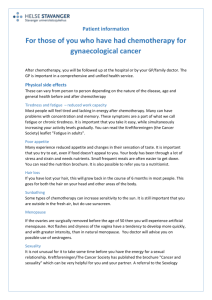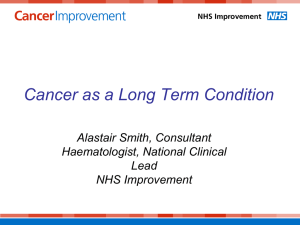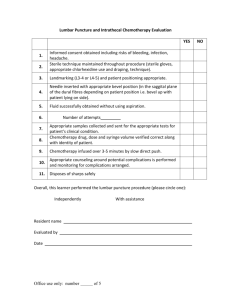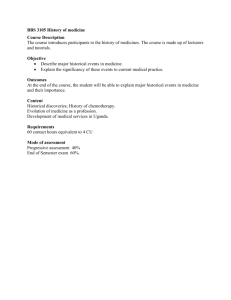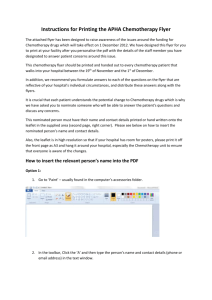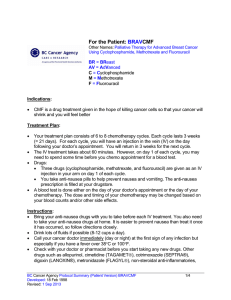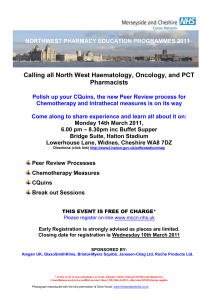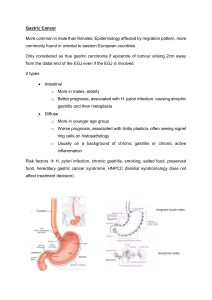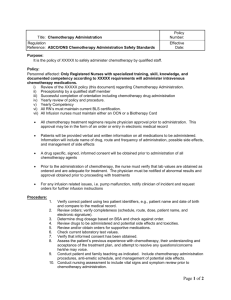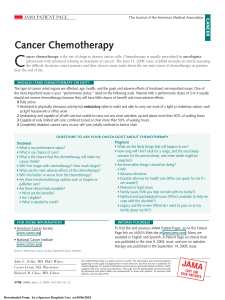Chemotherapy Discharge Instruction
advertisement
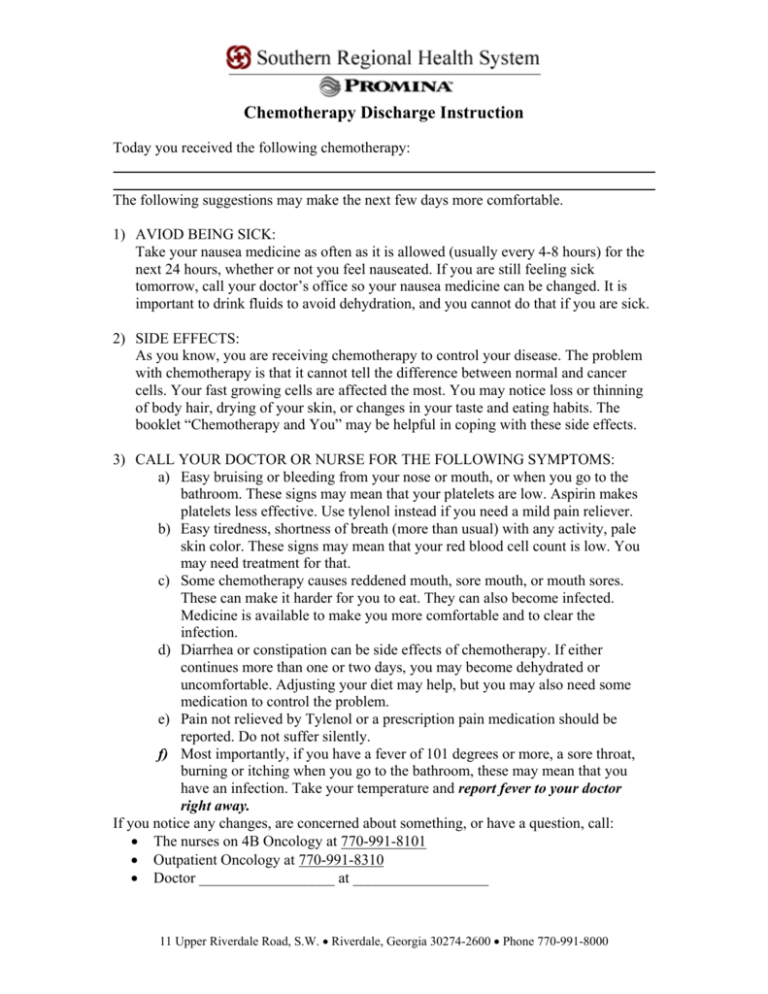
Chemotherapy Discharge Instruction Today you received the following chemotherapy: The following suggestions may make the next few days more comfortable. 1) AVIOD BEING SICK: Take your nausea medicine as often as it is allowed (usually every 4-8 hours) for the next 24 hours, whether or not you feel nauseated. If you are still feeling sick tomorrow, call your doctor’s office so your nausea medicine can be changed. It is important to drink fluids to avoid dehydration, and you cannot do that if you are sick. 2) SIDE EFFECTS: As you know, you are receiving chemotherapy to control your disease. The problem with chemotherapy is that it cannot tell the difference between normal and cancer cells. Your fast growing cells are affected the most. You may notice loss or thinning of body hair, drying of your skin, or changes in your taste and eating habits. The booklet “Chemotherapy and You” may be helpful in coping with these side effects. 3) CALL YOUR DOCTOR OR NURSE FOR THE FOLLOWING SYMPTOMS: a) Easy bruising or bleeding from your nose or mouth, or when you go to the bathroom. These signs may mean that your platelets are low. Aspirin makes platelets less effective. Use tylenol instead if you need a mild pain reliever. b) Easy tiredness, shortness of breath (more than usual) with any activity, pale skin color. These signs may mean that your red blood cell count is low. You may need treatment for that. c) Some chemotherapy causes reddened mouth, sore mouth, or mouth sores. These can make it harder for you to eat. They can also become infected. Medicine is available to make you more comfortable and to clear the infection. d) Diarrhea or constipation can be side effects of chemotherapy. If either continues more than one or two days, you may become dehydrated or uncomfortable. Adjusting your diet may help, but you may also need some medication to control the problem. e) Pain not relieved by Tylenol or a prescription pain medication should be reported. Do not suffer silently. f) Most importantly, if you have a fever of 101 degrees or more, a sore throat, burning or itching when you go to the bathroom, these may mean that you have an infection. Take your temperature and report fever to your doctor right away. If you notice any changes, are concerned about something, or have a question, call: • The nurses on 4B Oncology at 770-991-8101 • Outpatient Oncology at 770-991-8310 • Doctor __________________ at __________________ 11 Upper Riverdale Road, S.W. • Riverdale, Georgia 30274-2600 • Phone 770-991-8000

